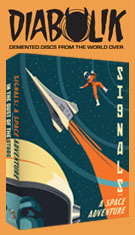



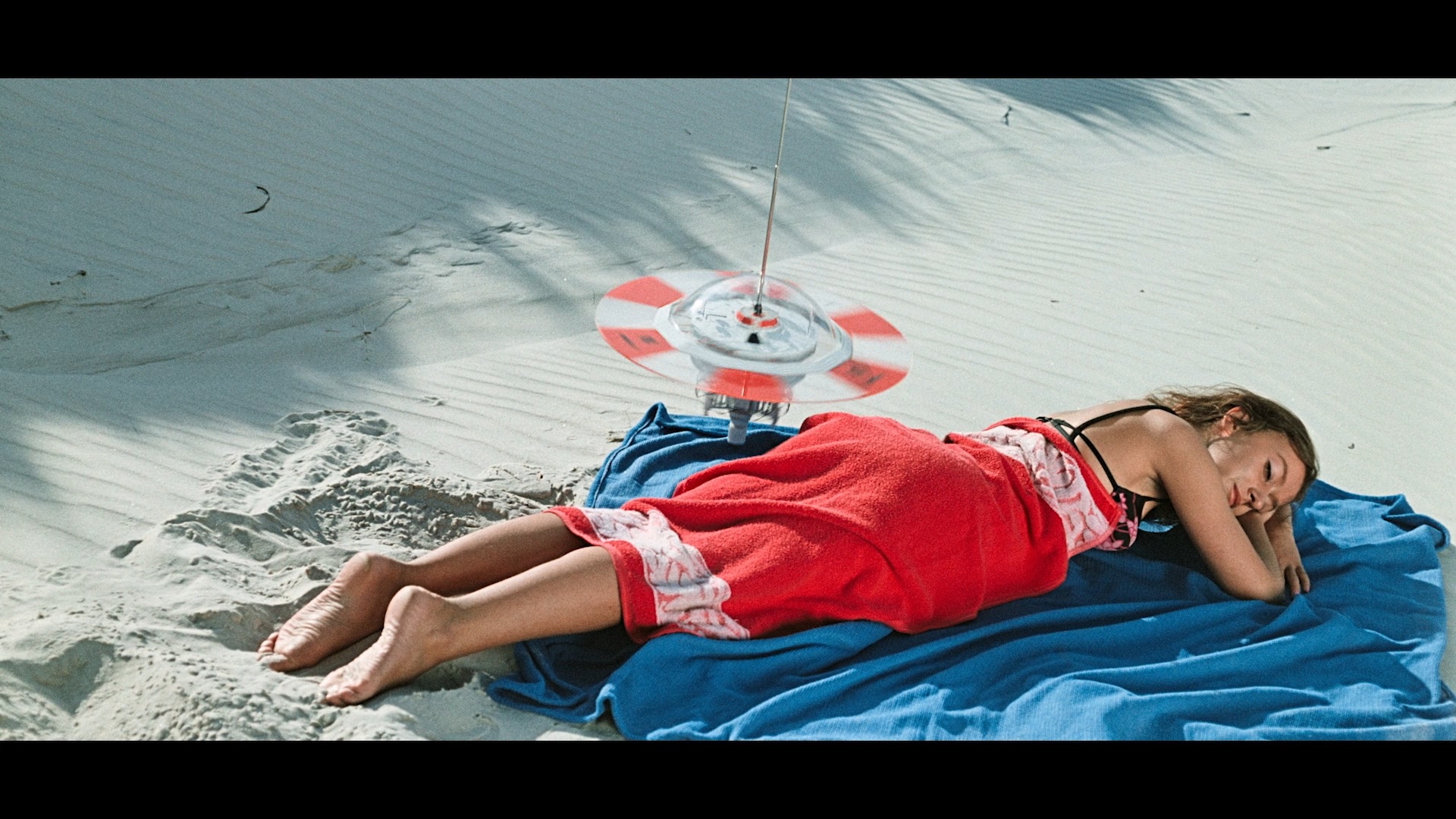 heady big-screen sci-fi spectacles inspired by Stanley Kubrick’s 2001: A Space Odyssey from 1968, the most obvious one is
heady big-screen sci-fi spectacles inspired by Stanley Kubrick’s 2001: A Space Odyssey from 1968, the most obvious one is 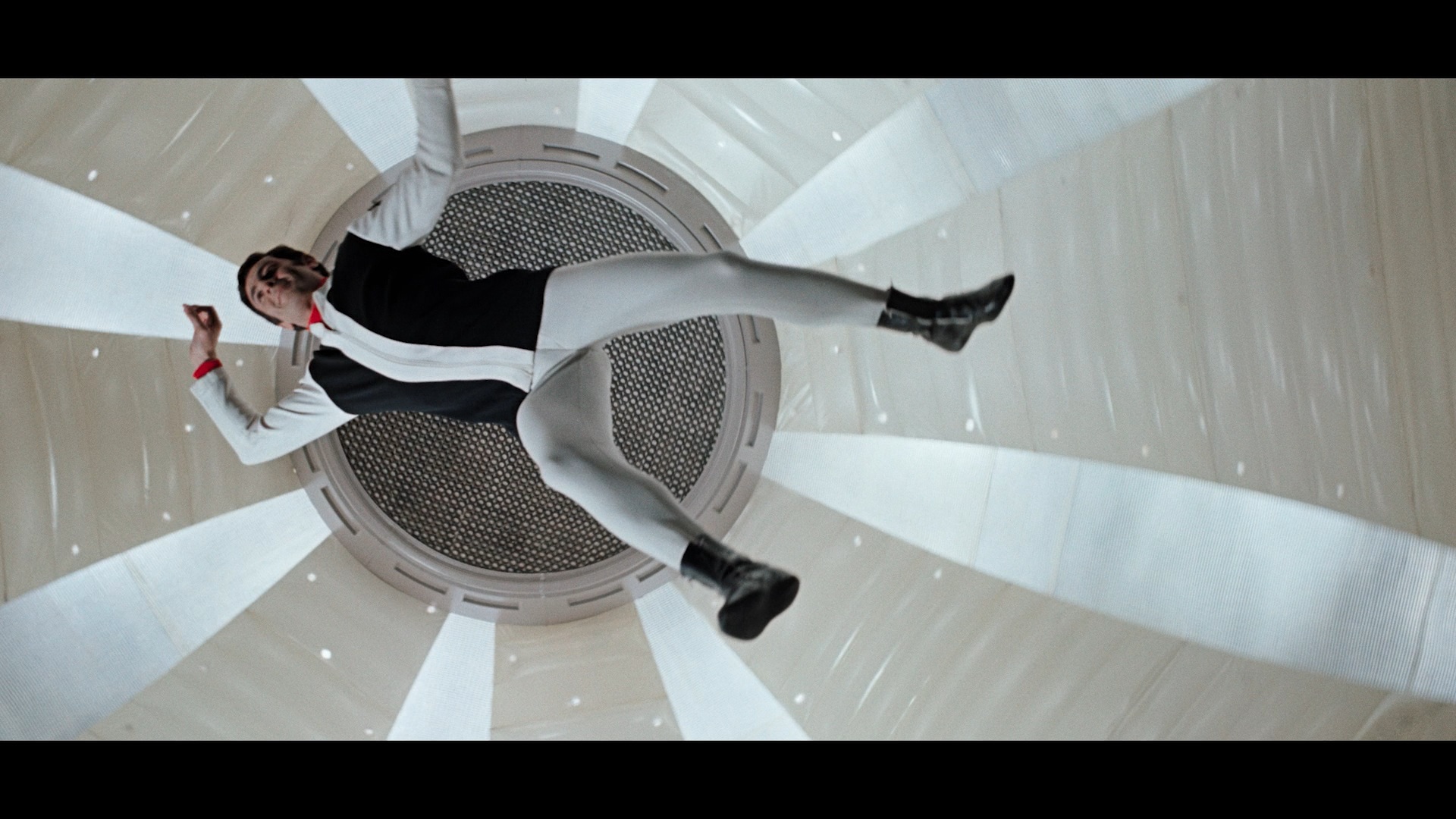 Andrei Tarkovsky’s Solaris made four years later. However, there were quite a few scattered in between from all over the world, and they don’t get much wilder or more visually immersive than 1970’s Signale: Ein Weltraumabenteuer, or Signals: A Space Adventure from East German studio DEFA and one of its regular filmmakers, Gottfried Kolditz, who had helmed some of its standout 1960s fairy tale films including Frau Holle and Snow White. Shot in 70mm with a very impressive six-track sound mix, the co-production with Poland is essentially unknown in the U.S. but has been given an impressive 6K restoration from the camera negative by the DEFA Foundation now available as the banner title in Deaf Crocodile’s two-disc set devoted to some of Kolditz’s sci-fi output. An alternate option for U.K. consumers is also offered (with two more films) from Eureka released a bit later.
Andrei Tarkovsky’s Solaris made four years later. However, there were quite a few scattered in between from all over the world, and they don’t get much wilder or more visually immersive than 1970’s Signale: Ein Weltraumabenteuer, or Signals: A Space Adventure from East German studio DEFA and one of its regular filmmakers, Gottfried Kolditz, who had helmed some of its standout 1960s fairy tale films including Frau Holle and Snow White. Shot in 70mm with a very impressive six-track sound mix, the co-production with Poland is essentially unknown in the U.S. but has been given an impressive 6K restoration from the camera negative by the DEFA Foundation now available as the banner title in Deaf Crocodile’s two-disc set devoted to some of Kolditz’s sci-fi output. An alternate option for U.K. consumers is also offered (with two more films) from Eureka released a bit later.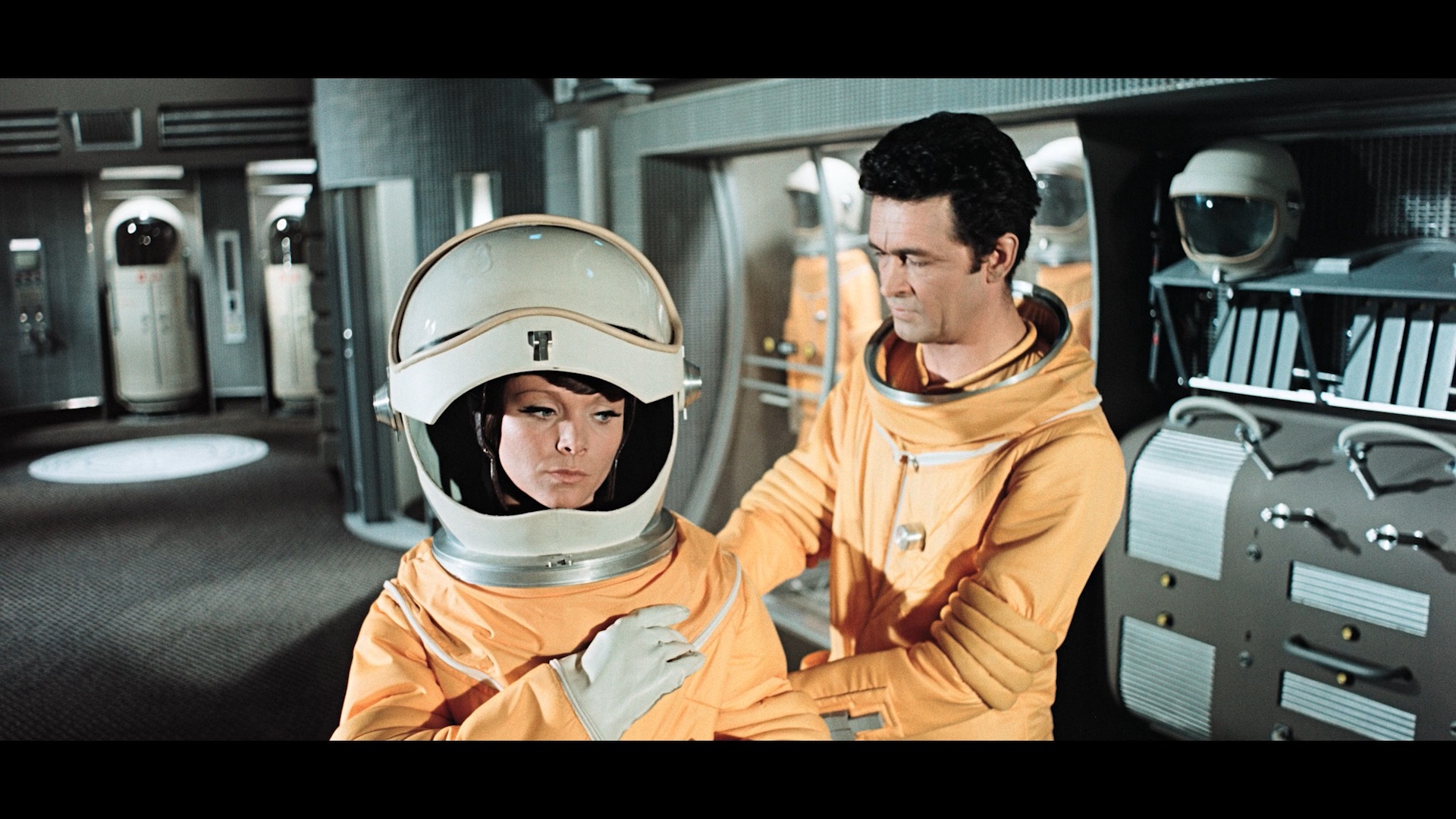 signals indicating that a very alien consciousness is trying to reach them with a message that may not be hostile. The pop
signals indicating that a very alien consciousness is trying to reach them with a message that may not be hostile. The pop 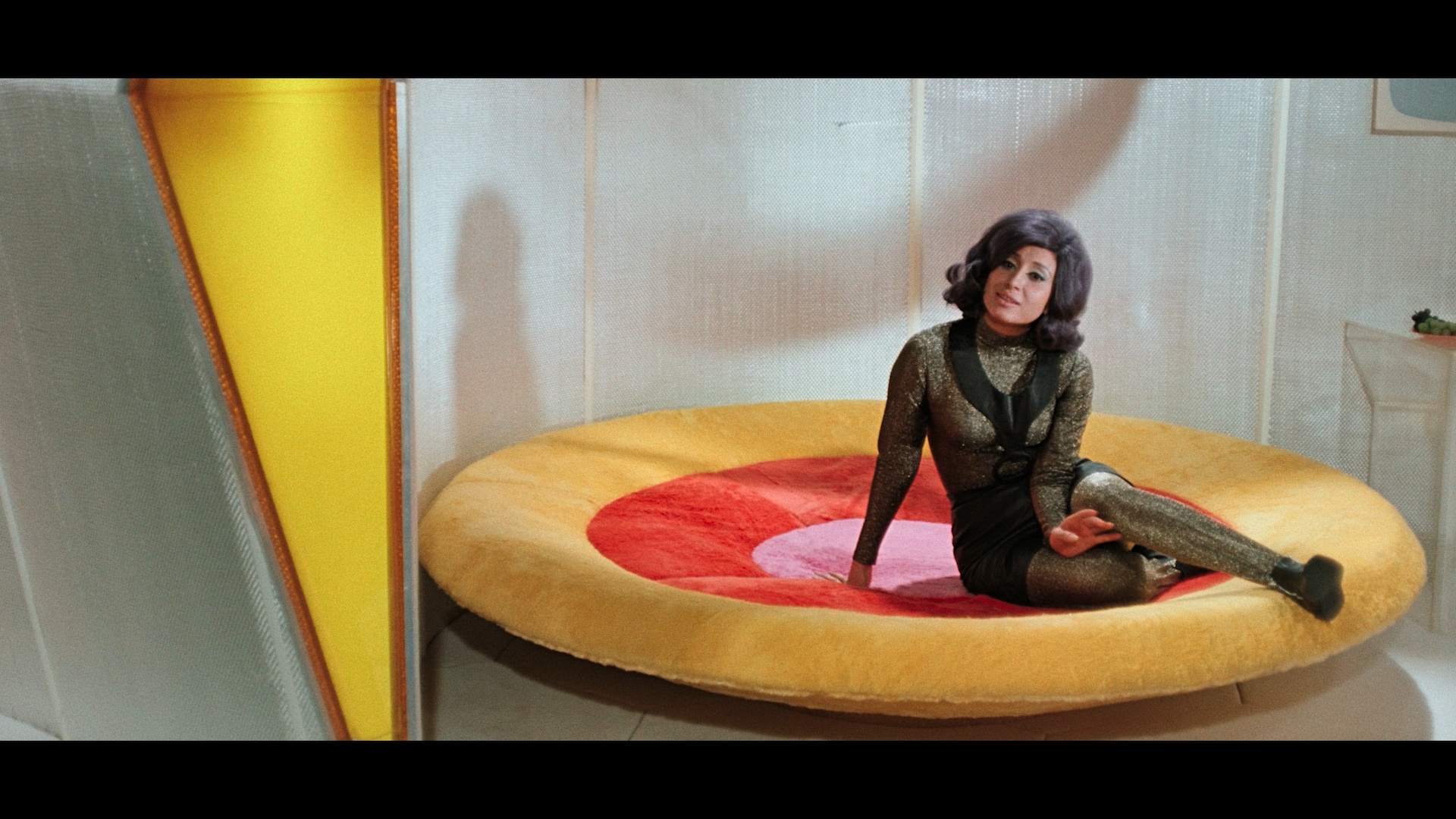 art influence here is fairly subdued but obvious, likely a holdover from the very popular 1966 West German single-season TV series Raumpatrouille (Space Patrol) and the international success of Barbarella. There's even a short and charming animated sequence that couldn't feel more Eastern European if it tried.
art influence here is fairly subdued but obvious, likely a holdover from the very popular 1966 West German single-season TV series Raumpatrouille (Space Patrol) and the international success of Barbarella. There's even a short and charming animated sequence that couldn't feel more Eastern European if it tried. 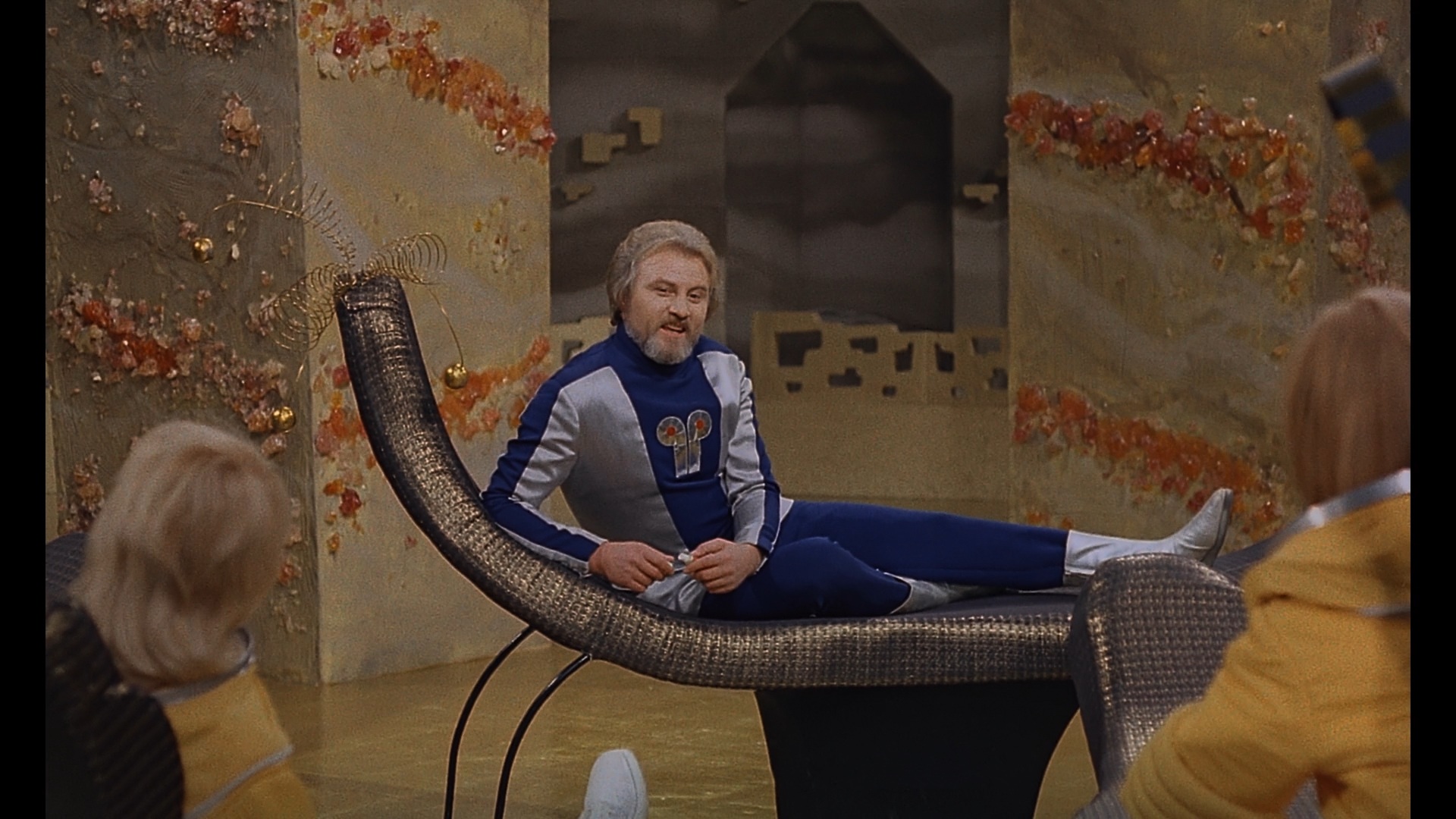 truth comes to light. Mostly though this is a comic book-style visual feast with colorful clothes and hairstyles that make Star Trek look subdued, while the spacey lounge score is a great addition especially during the party scenes. If you love splashy buffets,
truth comes to light. Mostly though this is a comic book-style visual feast with colorful clothes and hairstyles that make Star Trek look subdued, while the spacey lounge score is a great addition especially during the party scenes. If you love splashy buffets, 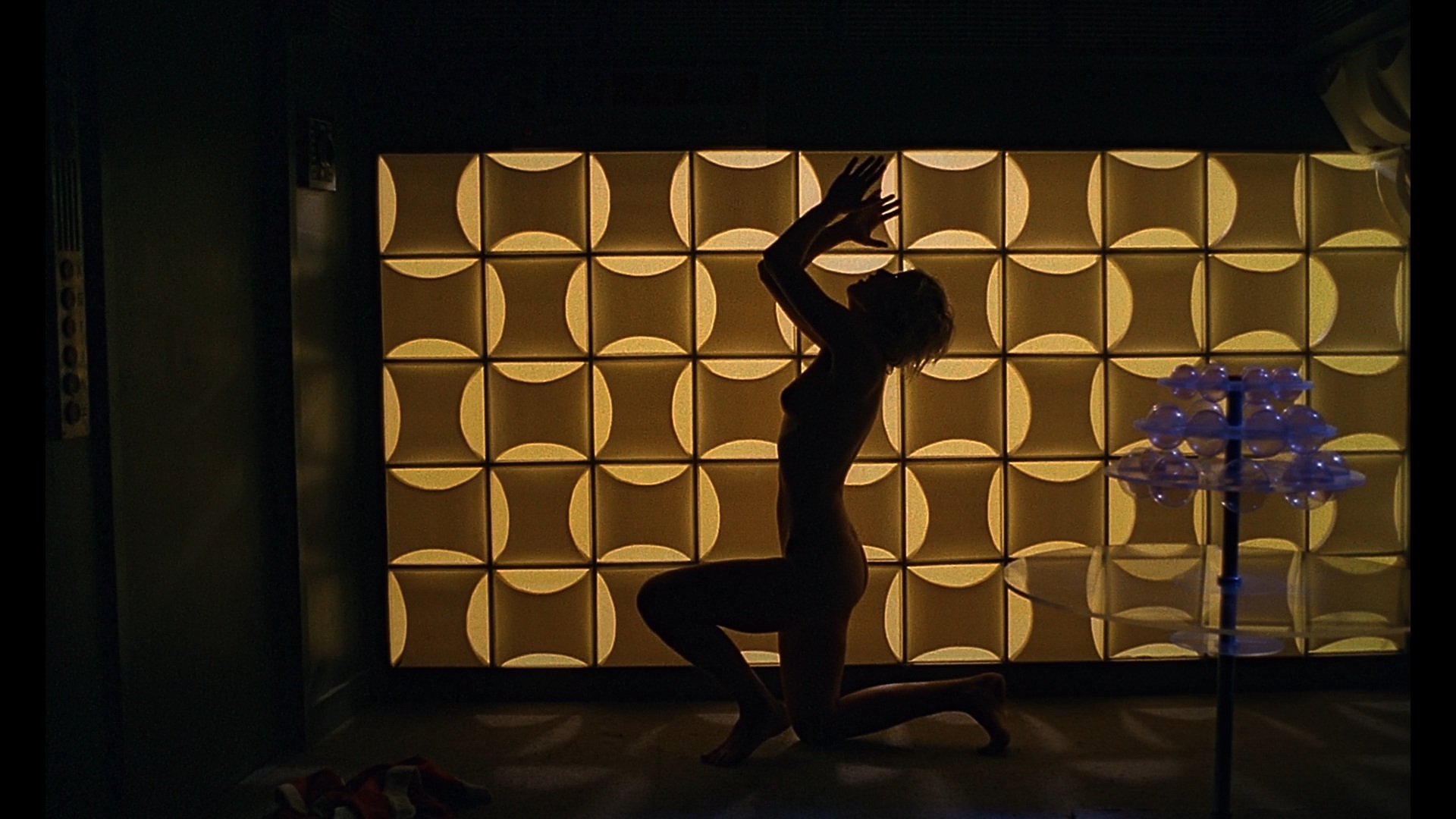 boa constrictors, naked interpretive dancing, and track suits doubling as space gear, this is the only place you'll find 'em all in one place.
boa constrictors, naked interpretive dancing, and track suits doubling as space gear, this is the only place you'll find 'em all in one place. the progression of sci-fi in East and West Germany, contemporaneous trends like Karl May
the progression of sci-fi in East and West Germany, contemporaneous trends like Karl May 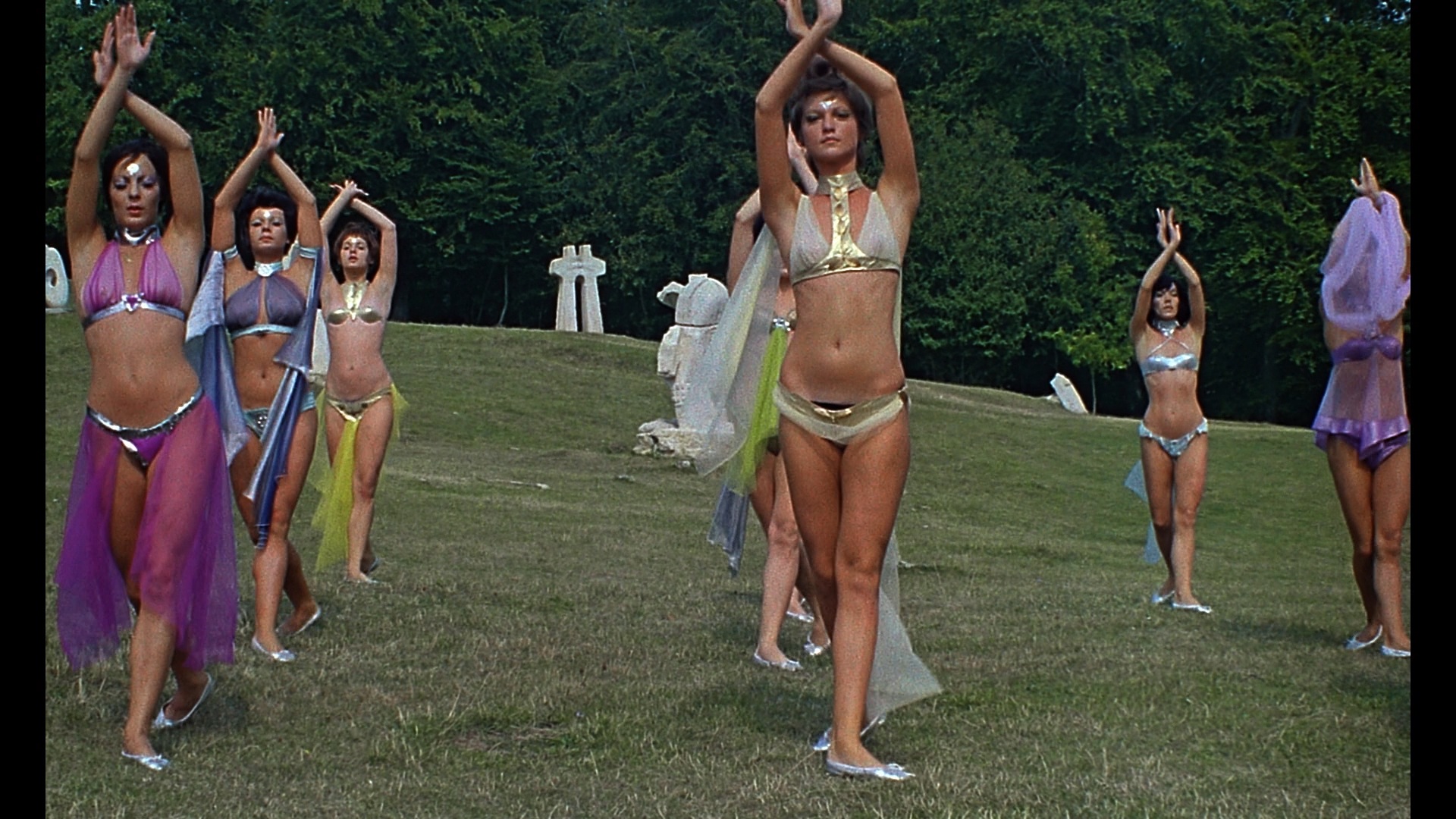 adventures, the handling of different ethnicities among the characters, and plenty more. Both films also come with their original trailers, while the second disc adds "Other Worlds, Strange Dreams: The East German Space Operas of Director Gottfried Kolditz" (17m43s), a video essay by Evan Chester about the history of DEFA, influences on these films, the studio's sci-fi films (including The Silent Star which became First Spaceship in Venus), the source novel for Signals, and more. The deluxe limited edition comes a slipcase in four alternate covers by Steve Thomas and a very hefty, gorgeous illustrated booklet featuring five new text pieces: an intensive breakdown by Rolf Giesen of Signals' evolution and its DEFA 70 process as well as its utopian communist elements that encouraged state officials; a Signals study by Walter Chaw about the film's place in Cold War genre cinema; another Giesen breakdown of Dust as the swan song for DEFA sci-fi appropriately created while Star Wars was in production; a study of Dust by Jennifer Barker about the heritage of sci-fi cinema to that point and interesting aspects of the Romanian locales and character genders; and an interview with the director's screenwriter son, Stefan Kolditz, in conversation with Deaf Crocodile's Dennis Bartok about memories of his father and visiting the set of Signals.
adventures, the handling of different ethnicities among the characters, and plenty more. Both films also come with their original trailers, while the second disc adds "Other Worlds, Strange Dreams: The East German Space Operas of Director Gottfried Kolditz" (17m43s), a video essay by Evan Chester about the history of DEFA, influences on these films, the studio's sci-fi films (including The Silent Star which became First Spaceship in Venus), the source novel for Signals, and more. The deluxe limited edition comes a slipcase in four alternate covers by Steve Thomas and a very hefty, gorgeous illustrated booklet featuring five new text pieces: an intensive breakdown by Rolf Giesen of Signals' evolution and its DEFA 70 process as well as its utopian communist elements that encouraged state officials; a Signals study by Walter Chaw about the film's place in Cold War genre cinema; another Giesen breakdown of Dust as the swan song for DEFA sci-fi appropriately created while Star Wars was in production; a study of Dust by Jennifer Barker about the heritage of sci-fi cinema to that point and interesting aspects of the Romanian locales and character genders; and an interview with the director's screenwriter son, Stefan Kolditz, in conversation with Deaf Crocodile's Dennis Bartok about memories of his father and visiting the set of Signals.![]()